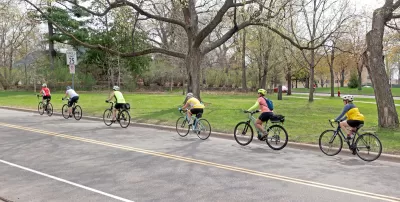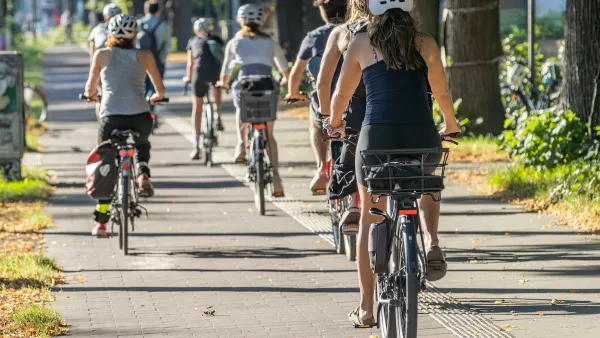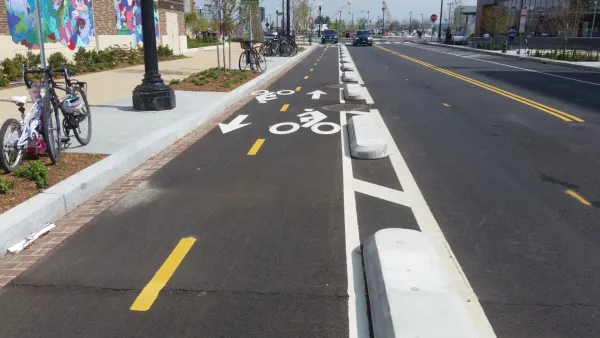Communities around Minneapolis and St. Paul are working to build more robust bike infrastructure networks.

The suburbs of Minneapolis and St. Paul are growing their bike infrastructure networks, thanks in part to state and federal grants. Writing in the Star Tribune, Greta Kaul notes that some suburban areas, such as Ramsey County, are developing their first-ever bike plans.
According to director of the League of American Bicyclists' Bicycle Friendly America program Amelia Neptune, “Suburbs were generally built for cars — often many lanes of them traveling at high speeds — so making them bike-friendly requires a culture shift.” In some places, biking is primarily viewed as recreational; consequently, bike infrastructure is concentrated in areas with nature trails and parks, but doesn’t connect to daily needs like grocery stores.
As Kaul explains, the Metropolitan Council distributes much of the funding for bike infrastructure in the region. “The regional sales tax passed by the Legislature is expected to add roughly $24 million a year to the $15 million in bike and pedestrian infrastructure federal funds distributed annually by the Met Council's Transportation Advisory Board.”
FULL STORY: Twin Cities suburbs aim to expand bike infrastructure

Maui's Vacation Rental Debate Turns Ugly
Verbal attacks, misinformation campaigns and fistfights plague a high-stakes debate to convert thousands of vacation rentals into long-term housing.

Planetizen Federal Action Tracker
A weekly monitor of how Trump’s orders and actions are impacting planners and planning in America.

In Urban Planning, AI Prompting Could be the New Design Thinking
Creativity has long been key to great urban design. What if we see AI as our new creative partner?

King County Supportive Housing Program Offers Hope for Unhoused Residents
The county is taking a ‘Housing First’ approach that prioritizes getting people into housing, then offering wraparound supportive services.

Researchers Use AI to Get Clearer Picture of US Housing
Analysts are using artificial intelligence to supercharge their research by allowing them to comb through data faster. Though these AI tools can be error prone, they save time and housing researchers are optimistic about the future.

Making Shared Micromobility More Inclusive
Cities and shared mobility system operators can do more to include people with disabilities in planning and operations, per a new report.
Urban Design for Planners 1: Software Tools
This six-course series explores essential urban design concepts using open source software and equips planners with the tools they need to participate fully in the urban design process.
Planning for Universal Design
Learn the tools for implementing Universal Design in planning regulations.
planning NEXT
Appalachian Highlands Housing Partners
Mpact (founded as Rail~Volution)
City of Camden Redevelopment Agency
City of Astoria
City of Portland
City of Laramie





























